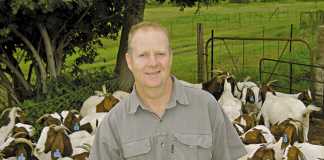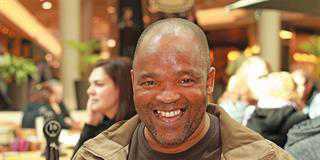What is your core business?
We have a very successful multimillion rand business listed on the Alternative Investment Market (AIM), a sub-market of the London Stock Exchange. Agriterra was originally an oil exploration company in South Sudan, but we have pulled out of that and are now purely focused on agriculture.
We have been operating in Mozambique since 2005, buying, cleaning and milling maize from small-scale growers. It’s a very big operation, with the turnover from the milling operations averaging US million (nearly R7 million) per month.
How are your milling operations performing?
We’ve had a record buying season in our operations in Chimoio and Tete in Mozambique. There was strong demand for our maize meal and bran, the by-products of maize processing, particularly in light of the wheat shortage. Sales of meal and bran are at unprecedented levels.
At our Chimoio processing and milling operation, we are currently buying from about 350 000 smallholders. So far this season they’ve delivered about 22 000t maize. Sales were up 174% in May, 208% in June, 149% in July and over 100% in August and September. The milling operation has been running 24/7 since the beginning of October, and will increase production by a further 30%. In Tete we now have 13 000t grain in stock and have commenced milling.
There is good expansion potential there as local recognition of the operation grows.
How much maize do you hold?
We hold the largest maize reserves in Mozambique. At the moment we’re sitting on 34 000t.
What support do you offer your maize outgrowers?
We supply them with seed packs, fertiliser packs and agronomy assistance. We also buy and transport products from source to towns so the growers don’t have a problem getting their product to market.
What are your expansion plans?
We are increasing milling capacity in Mozambique to meet demand. We are also investigating various opportunities in Zimbabwe and have started exporting bran from Mozambique to Zimbabwe. We want to start a similar operation in Zambia.
We’re moving into beef cattle ranching in Mozambique and are actively planning expansion into maize and possibly cocoa in five other African countries. We want to use the same small-scale outgrower scheme as in Mozambique, as we have proved that it works. You don’t have to own vast tracts of land to be successful and it is far more politically correct.
Do you have plans to upgrade any of your Mozambican farmers?
If you look at the typography and the population of Mozambique, it’s just not possible. They don’t own enough land to go commercial. Traditionally they’re quite happy to grow enough for themselves with a bit of surplus to sell.
Do you believe that the small-scale model will work in South Africa?
I’m not convinced of that. There are already big commercial farming operations in South Africa and I think it will always override small-scale production. Mozambique doesn’t have big commercial operations.
What are your plans with the cattle ranching initiative?
The beef operation is called Mozbife cattle ranching. We are aggressively penetrating the local villages, by giving free young bulls to selected settlements to improve herd quality and guarantee a supply to our abattoirs. The government has granted us Major Project Investment Approval, which paves the way for a rapid investment programme.
Cattle for a 14 000ha ranch in Dombe are being bought from the locals for fattening on grass before moving to the feedlot/abattoir in Vanduzi, where preparation for their arrival is progressing well. The first feed pens are completed and boundary fencing is going up.
In tandem with this, extensive land clearing and preparation is currently underway for 200ha maize to supply the feedlot. This will be followed by 300ha soya beans to ensure our beef operations continue to expand.
How big is your herd?
The herd currently stands at over 1 600 head and we are hoping to get to 15 000 in the next five years.
We imported nearly 600 Beefmaster bulls and cows from Tony da Costa of Manjoh Ranch in South Africa, who’s advising us on the way forward. The Beefmasters will form the nucleus of our breeding herd, from which we will select bulls to give to the locals. The plan is to introduce the Beefmaster’s quick-growing strain while retaining the good disease resistance of the local Mashona breed.
How is your share price looking?
It increased by about 23% in the first week of November. People are suddenly interested again. Everyone was scared to invest after the financial crisis. But I firmly believe food in Africa is the future.
You are irrigating almost 300ha to supply the Vanduzi feedlot. Where do you draw water from?
We have completed final planning for a 42 200Mâ„“ irrigation dam and are about to start construction. This dam will be on the Mavusi River and will supply water for a further 400ha of irrigated pasture.
Do you expect any difficulty with water supply in the future?
No, because we will have the dam. But electricity is a nightmare. On the farms, everything is run on diesel generators, even our irrigated pastures. That’s extremely expensive. In the long term we are hoping that the government will expand the electricity network and we will eventually have power on the property. The abattoir does have power.
Does government support your business in light of its desire to improve food security?
We receive tremendous support from government but corruption and bureaucracy are massive problems that government must tackle. Corruption is mainly among low level officials who want to line their pockets, while high level officials cooperate.
Do farmers still need to own land for commercial maize production?
I don’t believe it’s necessary to own large tracts of land. I believe the locals can produce the product for you and you become the agroprocessor in the middle. In Mozambique there is no freehold of land. It’s all on lease.
What advice do you have for South African farmers wanting to get land in Mozambique?
Be patient. We waited up to three years for leases to be signed. But it does happen and they are genuine and honoured. South African farmers are getting land but I have yet to see the fruits of their labour. A lot of guys have come in and left in despair. Mozambique is not for sissies.
Is malaria a problem?
It’s a huge problem. People die by the tens of thousands every year in Chimoio where we live, which is 1 300km north of Maputo. It really is one of the biggest drawbacks and has a very negative effect on our workforce.













